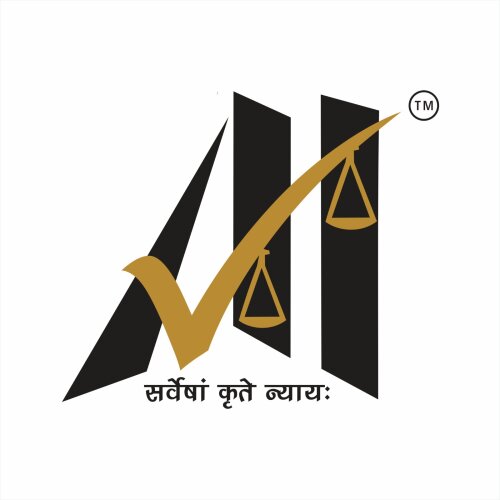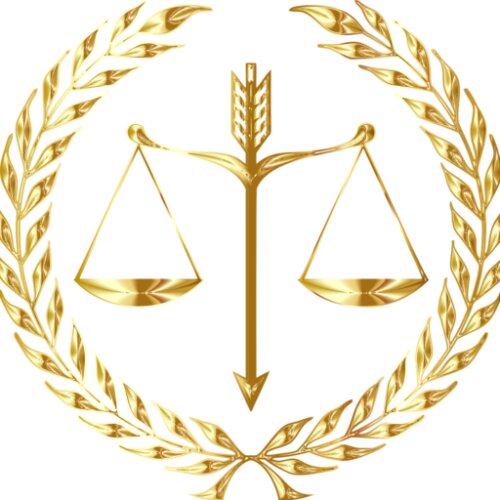Best Drugs & Medical Devices Lawyers in India
Share your needs with us, get contacted by law firms.
Free. Takes 2 min.
Or refine your search by selecting a city:
List of the best lawyers in India
About Drugs & Medical Devices Law in India
The regulation and control of drugs and medical devices in India are governed by a plethora of laws aimed at ensuring the safety, efficacy, and quality of pharmaceuticals and medical devices. The primary legislative framework is the Drugs and Cosmetics Act, 1940, which provides detailed regulations on the import, manufacture, distribution, and sale of drugs and medical devices. The Central Drugs Standard Control Organization (CDSCO) is the national regulatory body responsible for enforcing these laws and ensuring compliance with standards. India's drug and medical device laws aim to protect public health and facilitate the industry's growth by providing a structured regulatory environment.
Why You May Need a Lawyer
There are several common situations in which individuals or companies might require legal assistance related to drugs and medical devices in India:
- Regulatory Compliance: Navigating the complex regulatory framework, submitting applications, and meeting compliance requirements can be challenging without legal guidance.
- Clinical Trials: Ensuring adherence to legal and ethical standards in conducting clinical trials requires expert legal advice.
- Patent and Trademark Disputes: Legal issues concerning intellectual property rights of drugs and medical devices often necessitate legal intervention.
- Litigation: Companies may face litigation over safety concerns, adverse effects, or contractual disputes related to drugs and medical devices.
- Licensing and Permits: Obtaining the necessary licenses and permits for manufacturing or marketing can require legal expertise.
Local Laws Overview
The legislation governing drugs and medical devices in India primarily involves:
- Drugs and Cosmetics Act, 1940: This act regulates the import, manufacture, distribution, and sale of drugs and cosmetics in India.
- Medical Device Rules, 2017: These rules specifically cater to the regulation of medical devices, providing a separate framework under the Drugs and Cosmetics Act.
- Drug Price Control Order (DPCO): This regulates the prices of medicines to ensure they are affordable for the public.
- Pharmacy Act, 1948: Regulates the profession of pharmacy and updates laws concerning their practices.
- Narcotic Drugs and Psychotropic Substances Act, 1985: Controls and regulates operations related to narcotic drugs and psychotropic substances.
Frequently Asked Questions
What are the key bodies regulating drugs and medical devices in India?
The primary regulatory body is the Central Drugs Standard Control Organization (CDSCO), which functions under the Ministry of Health and Family Welfare. It oversees the approval of new drugs, clinical trials, and issue of licenses for import, manufacture, and sale of drugs and medical devices.
What is the process for getting drug approval in India?
The process involves submitting an application with data on the drug's safety, efficacy, and quality to the CDSCO, following which clinical trials may be conducted. Upon successful evaluation, the CDSCO grants approval for manufacturing or importing the drug.
Are clinical trials mandatory for medical devices in India?
Yes, for certain classes of medical devices, clinical trials are mandatory to ensure safety and efficacy before they can be marketed in India.
How are drug prices regulated in India?
Drug prices are regulated by the National Pharmaceutical Pricing Authority (NPPA) under the Drug Price Control Order (DPCO), which aims to make essential drugs affordable to the public.
What legal recourse is available in case of adverse effects from a drug or medical device?
Consumers can file a complaint with the consumer court or report to the CDSCO. Legal action can be pursued for compensation or product recall if necessary.
How can a company protect its drug patents in India?
Companies can file for patents under the Patents Act, 1970. Legal assistance is often advised to navigate the patent filing process and handle any disputes.
What is the distinction between 'new drug' and 'generic drug' in India?
A 'new drug' is one that has not been extensively used or marketed in India, requiring approval after safety evaluations. A 'generic drug' is a reproduction of an existing drug that, after patent expiry, meets the same specifications as the original.
Do imported medical devices require special clearance in India?
Yes, imported medical devices must be registered with the CDSCO, demonstrating adherence to safety and quality standards as per Indian regulations.
What steps can I take if my drug application is rejected?
Legal counsel can guide you in appealing the decision, addressing deficiencies, and resubmitting the application for reconsideration.
How often are new regulations introduced for drugs and medical devices?
The regulatory framework is dynamic, with updates introduced regularly to align with international best practices and address emerging health challenges. It is crucial to remain updated through credible sources or legal experts.
Additional Resources
- Central Drugs Standard Control Organization (CDSCO): The primary regulatory authority for drugs and medical devices in India.
- Ministry of Health and Family Welfare: Oversees policy-making and regulation concerning public health, including drug regulations.
- World Health Organization (India Office): Provides guidance on international standards and practices for drugs and medical devices.
- National Pharmaceutical Pricing Authority (NPPA): Government agency responsible for drug pricing regulations.
- Indian Pharmaceutical Association (IPA): Professional association offering resources and support for pharmacy professionals.
Next Steps
If you require legal assistance in the domain of drugs and medical devices in India, consider the following steps:
- Identify Your Needs: Clearly define the legal challenges or questions you have.
- Seek Expert Consultation: Reach out to a lawyer or legal firm with expertise in Indian drug and medical device law.
- Prepare Documentation: Gather all relevant documents, correspondences, and records that might be needed for legal proceedings.
- Understand the Legal Process: Gain an understanding of the legal procedures involved and the potential outcomes to set realistic expectations.
- Follow-Up: Regularly communicate with your legal counsel to stay informed about your case or consultation outcome.
Lawzana helps you find the best lawyers and law firms in India through a curated and pre-screened list of qualified legal professionals. Our platform offers rankings and detailed profiles of attorneys and law firms, allowing you to compare based on practice areas, including Drugs & Medical Devices, experience, and client feedback.
Each profile includes a description of the firm's areas of practice, client reviews, team members and partners, year of establishment, spoken languages, office locations, contact information, social media presence, and any published articles or resources. Most firms on our platform speak English and are experienced in both local and international legal matters.
Get a quote from top-rated law firms in India — quickly, securely, and without unnecessary hassle.
Disclaimer:
The information provided on this page is for general informational purposes only and does not constitute legal advice. While we strive to ensure the accuracy and relevance of the content, legal information may change over time, and interpretations of the law can vary. You should always consult with a qualified legal professional for advice specific to your situation.
We disclaim all liability for actions taken or not taken based on the content of this page. If you believe any information is incorrect or outdated, please contact us, and we will review and update it where appropriate.
Browse drugs & medical devices law firms by city in India
Refine your search by selecting a city.















